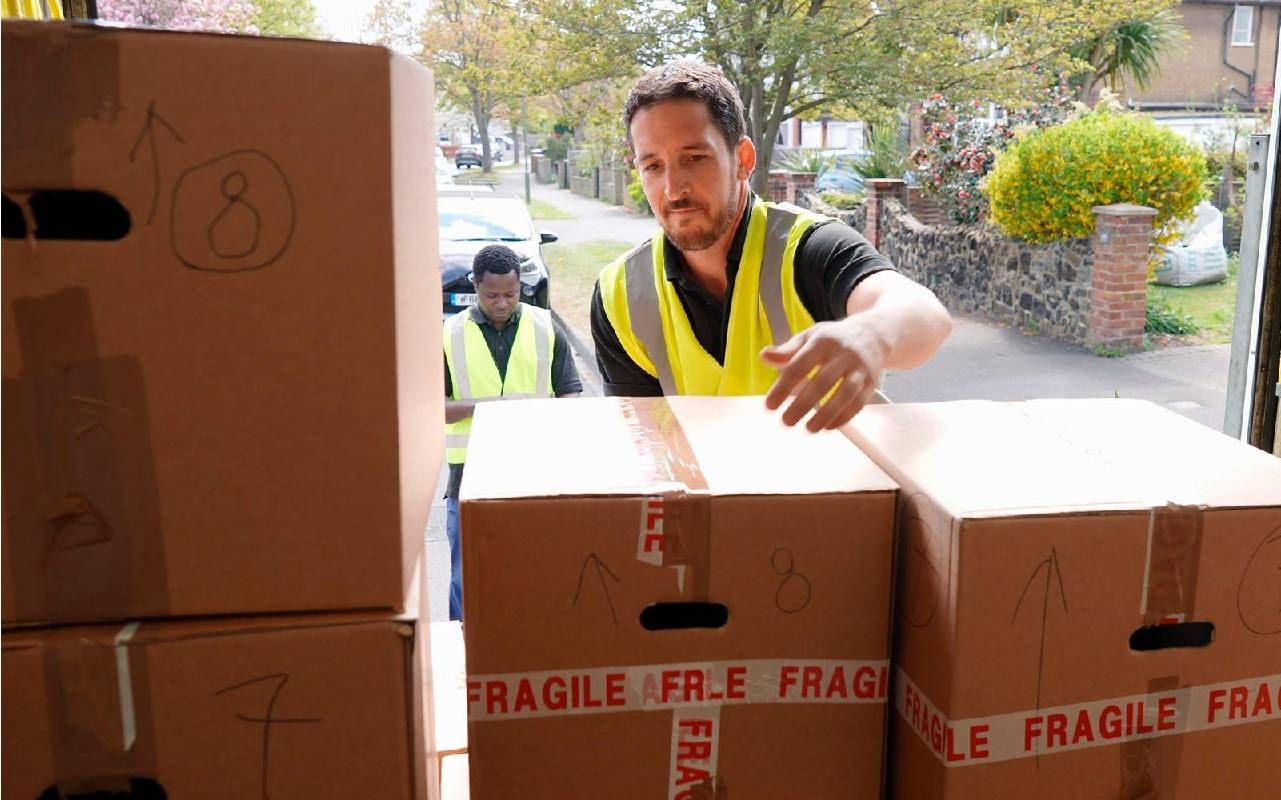Preparing to Relocate?
Plan ahead and check references so you don’t get taken for a ride on moving day
I told my brother not to use the moving company he found on the internet, but did he listen? Nooo.

My mother sold the house she had called home for 35 years to live in a condo 1,300 miles away — and near me. Because Mom was in her late 80s, my brother and I divvied up the necessary tasks to ensure a smooth transition to her new home. My brother's job was to hire the moving van.
"Just because somebody has a nice website doesn't necessarily mean they have the resources available to handle your move."
In the week leading up to the move, he got a song and dance about when a truck would arrive every time he called the business, based in California, nowhere close to Mom's place. With rising panic, and less than 48 hours left before closing, I picked up the phone to secure a local carrier instead. Thank goodness I found one, and the relocation (finally) went off without a hitch. Equally miraculous, the first movers fully refunded our deposit, sparing Mom from losing $2,000.
"We get calls like this all the time," was the sympathetic refrain I heard from each of the (legit) moving companies I contacted. Which made me wonder just how prevalent this kind of shady practice is.
Risky Business
More than I would have guessed. According to the Federal Motor Carrier Safety Administration (FMCSA), part of the U.S. Department of Transportation, 16.1 million households — about 1 in 10 — move each year. Around a quarter of those moves were between states, so they fell under federal authority.
In 2023, FMCSA received 4,308 complaints; mostly about missing or damaged property and overcharging. The average loss was $16,000. The same year, the Better Business Bureau (BBB) fielded more than 11,000 complaints about movers through its Scam Tracker website.
May is National Moving Month, beginning the five-month peak season for home sales and household moving. That makes it a good time to think about upcoming or future relocations. As Melanie McGovern of the International Association of Better Business Bureaus puts it, "Having these tips in your brain before you have to look for a moving company is really important."
Red Flags
Several signs of potential trouble stand out in the story of my mother's move; all of them are common to moving calamities, according to the experts.
"A lot of people start their research on the internet," instead of looking at nearby carriers, notes McGovern.
"Just because somebody has a nice website," adds Bridgid Shields of MoveRescue, a group that assists consumers, "doesn't necessarily mean they have the resources available to handle your move."
An easy way to test that ability is to search on the internet for their address, says Shields. If the result shows only a house or a nondescript building with no signage, the company may be a fly-by-night mover who cannot produce a truck when promised (showing up with one that doesn't have its name on it is another warning sign).
Two other indications the outfit isn't trustworthy, says McGovern, are "if they don't come to your house for an estimate, [and instead] just give you a ballpark estimate, and also insist on money up front."
One circumstance you really want to avoid is a "hostage" situation, when unscrupulous haulers refuse to unload your possessions until you pony up more cash.
Most reputable companies don't require deposits, especially large ones, Shields cautions. She adds that by demanding a sizable payment before the move means "they're kind of trying to lock you in," in case you discover later they're not on the up and up, and want to back out of the deal.
One circumstance you really want to avoid is a "hostage" situation, when unscrupulous haulers refuse to unload your possessions until you pony up more cash. Should that happen, advises Monique Riddick, Chief-Enforcement Division within the FMCSA Office of Safety, call the police. "But the second thing you should do is to file a complaint in our National Consumer Complaint Database."
The Smart Move
Here's what my brother should have done, and what everyone ought to do: thoroughly investigate each company before packing even a single box. Start by soliciting local references from people who've had positive moving experiences.
Professionals concur it's best to procure a minimum of three in-person estimates—because how else will a mover know how much space is needed for your possessions? Make sure they note any fragile or antique pieces needing special attention. Find out whether they're licensed members of industry groups such as the American Trucking Associations or your state's moving association (see below for resources). Also, verify they're insured and bonded.
During these appointments, you must receive a bill of lading, a legal document required by the FMCSA. It details what's being shipped and the delivery terms. Two other FMCSA publications, "Rights and Responsibilities When You Move" and "Ready to Move?" also have to be handed out to every customer.
Know a Broker from a Mover
Read the bill of lading carefully, Riddick and McGovern advise, and ask about anything you don't understand. One item that it is important to be clear on is whether the company is a mover or a moving broker. The former is the firm that will move you, the latter works to find a third-party company to do the job, McGovern explains.
"You might be calling ABC moving broker, but XYZ movers are going to move you," she says. "You want to make sure you know the difference," particularly if the broker is not local. That can lead to complications if problems arise.
Moving is expensive, but price isn't always the most important factor, says Riddick. "One of the pitfalls is even though the consumer might do their due diligence, many times they opt to go with the cheapest estimate, which might not be in their best interest."
Listen to Your Gut
Shields says that when MoveRescue was more actively involved in offering immediate help to people in dire straits, older adults weren't more likely than any others to be preyed upon. "It was everybody," she notes, and Riddick agrees.
As is often the case, no one wants to admit they've made a possibly costly mistake or been had. My brother simply froze, unable to think what to do, just hoping everything would work out. That's a familiar scenario, says Shields.
Many who've been scammed had a feeling something was wrong long before things went off the rails. "People have a sense of pride [and think], 'Even though it feels like this is not right, it must be okay because I'm not the type of person who gets taken advantage of,'" Shields says. "Then it gets worse and worse."
How Good Movers Operate
Throughout all your preparations, though, keep in mind not every mover is out to rip you off. Most do a good job, Riddick acknowledges, "but we do have those rogues that are wreaking havoc on the industry, and they give the good movers a bad name."
That's certainly true in my mom's case. The first honest mover I called could not help me, but referred me to a second one, who in turn recommended a third, who had room in a truck heading where Mom was going. He did indeed do an in-home estimate, and gave us a bill of lading plus the two other compulsory documents.
The reason I'm writing this is in hopes you never find yourself in a similar predicament.
Where to Seek Help to Avoid Moving-Day Blues
- Protect Your Move. The FMCSA website has a database of registered interstate movers, access state-level enforcement data and a process to report grievances or criminal violations.
- Better Business Bureau. The BBB has tips on planning a relocation and hiring a mover. Search its list of accredited companies to find one near you. The BBB can arbitrate disputes or recommend an arbitrator.
- MoveRescue. Sponsored by United Van Lines and Mayflower Transit, this site has sections has tips on before, during and after a move, along with FAQs on what to do if things go sideways.
- American Trucking Associations. A trade association for movers and storage companies, ATA lists certified moving companies and tools such as a checklist on tasks to do.
- AARP Fraud Watch Network. This site has fraud-prevention resources such as tip sheets, scam reporting, and updates on the latest cons. You don’t have to be a member to call its helpline, 877-908-3360.

Read More

